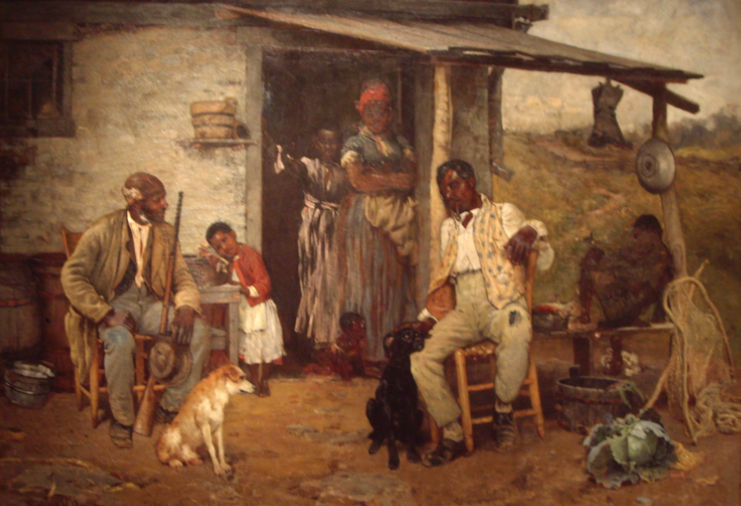The African family was protected only under Spanish and French slave codes, if not practices.
Organize to Reflect and Evaluate on
Sydney Mintz's Sweetness & Power arguments
"I have argued that the plantations . . . ."
Mintz, p, 59.
"The decision about personal destiny, as far as health is concerned, is stressed directly on the individual, despite the fact that everywhere in the community blandishments exist to increase individual risk of disease development. . . ."
Lionel Tiger, quoted on, p. 212.
A textual analysis & critical exegesis
text | interpretations | precocious capitalism | chronology | exegesis an example | source
“Certain facts stand out in the history of sugar between early decades of the seventeenth century (1600s), when the British Dutch and French established Caribbean plantations and the middle of the nineteenth century, by which time Cuba and Brazil were the major centers of New World production.”
“Over this long period, sugar production grew steadily, as more Westerners consumed sugar and each consumer used it more heavily. Yet technological changes in the field, in grinding and even in refining itself were relatively minor.”
“Generally speaking, the enlarged market for sugar was satisfied by a steady extension of production rather than by sharp increases in yield per acre of land or ton of cane, or in productivity per worker.”
Page. 36.
text | interpretations | precocious capitalism | chronology | exegesis an example | source
"Not until 1655 with the British invasion of Jamaica, does the amount of sugar become commercially notable."
“after 1655 and until the mid nineteenth century, the sugar supply of the English people would be provided substantially within the skein of the empire.”
" . . . imperial laws were passed to control the flow of such goods, and of the goods for which they were exchanged.”
Page 37.
“At the consumption end, changes were both numerous and diverse. Sugar steadily changes from being a specialized—medicinal, condimental, ritual, or display commodity into an ever more common food."
Pages, 36-37.
“This insertion of an essentially new product within popular European tastes and preferences was irreversible, though the cost of the sugar at times certainly braked consumption.”
Page, 37
“The experience of the English in having sugar pumped into every crevice of their diet was, …repeated in other lands, at times more swiftly after 1900—but with some significant differences.”
p. 188.
text | interpretations | precocious capitalism | chronology | exegesis an example | source
Organizing Mintz's arguments:
"Seventeenth-century England, . . . was deeply divided"
"Before the end of the seventeenth century, while sugar was still a precious and rare substance, it had little meaning for most English people, . . ."
p. 154.
". . . but sugar imagery became ever commoner in English literature."
p. 155.
“sugar is a stimulus…”
page, 177.
In a small group compare and contrast the arguments you have recorded and interpreted from Mintz's Sweetness and Power.
Place these arguments in a chronological order with regard to the period, decades or century that Mintz uses these arguments too analyze & interpret.
Such as:
1) "The track sugar has left in modern history is one involving masses of people and resources, thrown into productive combination by social, economic, and political forces, that were actively remaking the entire world. The technical and human energies these forces released were unequaled in world history."
Mintz, p, 211.
2) "One might ask what difference it makes whether one calls the plantation system 'capitalistic' or not. The question matters because it has to do with the way economic systems grow and change, and with the chain of causation that leads from one stage to another."
3) "As far as the British West Indies were concerned, the zenith of sugar's imperial role probably came in the late eighteenth century, during the reign of George III."
4) "I have argued that the plantations were themselves precocious cases of industrialization."
Mintz, p, 59.
5) "The widely different ways that sweetness is perceived and employed support my argument that the importance of sweetness in English taste preferences grew over time, and was not characteristic before the 18th century."
Mintz, p, 18.
- The above five quotations belong from the earliest to the most recent in this listed order: 2, 5, 4, 3, 1.
Argument meaning page
1.
2.
3.
text | interpretations | precocious capitalism | chronology | exegesis an example | source
"Human beings are caught up in webs of signification they themselves have spun. We are able to perceive and interpret the world only in terms of pre-existing, culture-specific systems for endowing reality with meaning."
". . . we must think the world to be able to see (classify) it . . . "
"ask how this is done"
p. 157
How fine and intricately the webs are created, sustained and invested with meaning,
Crucial pages to consider:
pp.157-58-59.
Mintz, Food as a powerful force . . . pp.151-186. European colonial rivalry and scars of imperial power and mercantilism,
- Food, Sociality, and Sugar, "Sweetness is a taste --what Hobbes called a 'Quality'--"
- Production,"I... focus on the possessions that supplied the UK with sugar, molasses, & rum.
- Consumption, "a discussion in terms of what people did and thought...."
- Power, "I try to say something about ...circumstance, conjuncture, and cause."
- Eating and Being, "Social phenomena are by their nature historical."
text | interpretations | precocious capitalism | chronology | exegesis an example | source
Crosby's underlying assumptions from Germs Seeds and Animals.
Crosby's ultimate conclusions.
Caribbean Study Guide
Comparing authors
![]()
Lists | Three ways to arrange & order | Revolutionary | Question | Evidence | Summary
How does this relate to CORE? In order to evaluate the Mintz book by reflecting on his arguments we must initially take Step Two which is to organize, how to put a series of related and unrelated concepts into a logical framework based on evidence.


 Sugar: Sweetness and Power
Sugar: Sweetness and Power